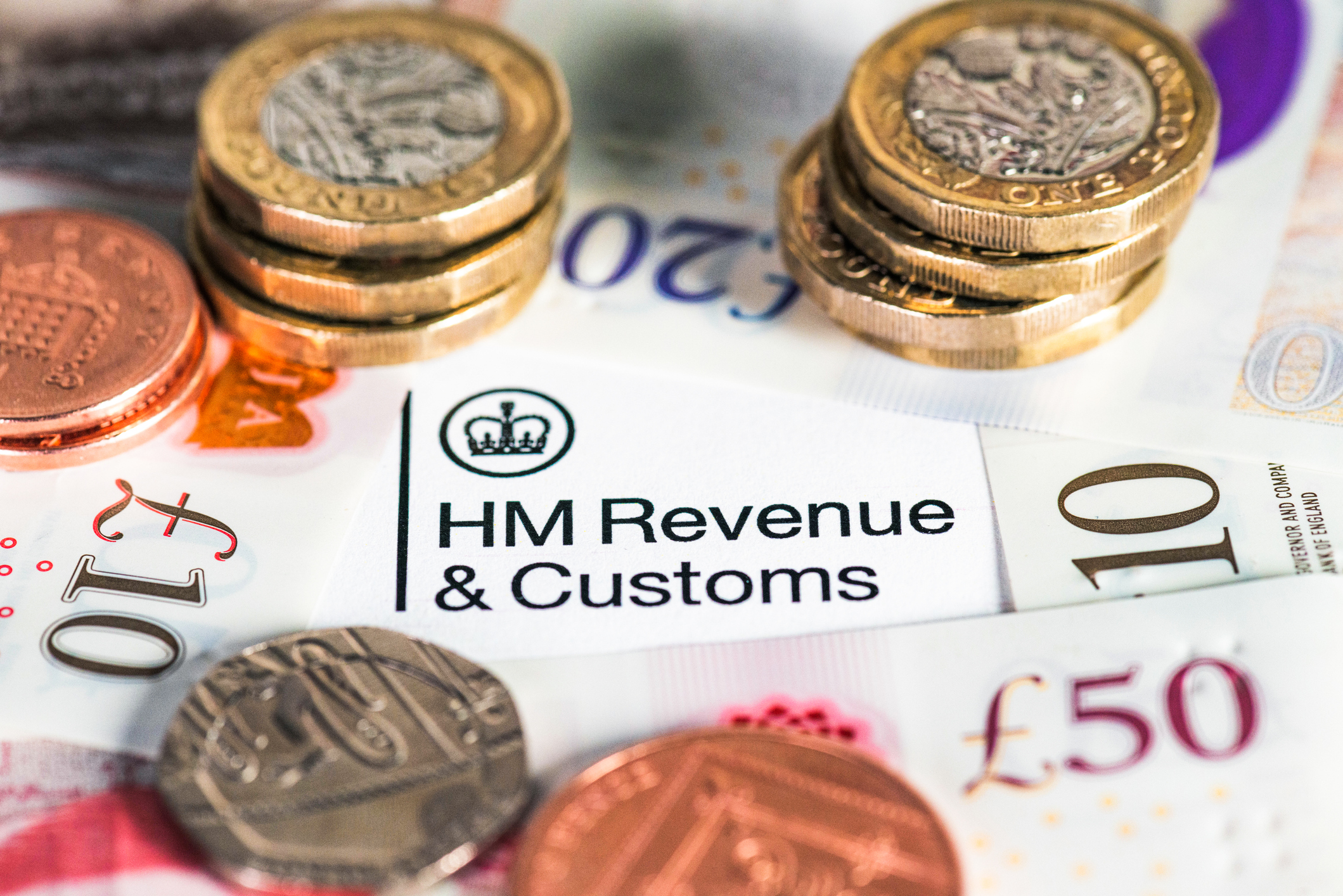Inheritance tax receipts rise to £7.1 billion as more families pay up
Inheritance tax receipts look set to hit another record high for Treasury this financial year

Laura Miller

Get the latest financial news, insights and expert analysis from our award-winning MoneyWeek team, to help you understand what really matters when it comes to your finances.
You are now subscribed
Your newsletter sign-up was successful
Want to add more newsletters?

Twice daily
MoneyWeek
Get the latest financial news, insights and expert analysis from our award-winning MoneyWeek team, to help you understand what really matters when it comes to your finances.

Four times a week
Look After My Bills
Sign up to our free money-saving newsletter, filled with the latest news and expert advice to help you find the best tips and deals for managing your bills. Start saving today!
Inheritance tax (IHT) receipts rose to a total of £7.1 billion in the first 10 months of the current 2025/26 tax year, as more families part with some of their inheritance.
Fresh figures from HMRC show IHT receipts collected between April 2025 and January 2026 jumped by £130 million compared to the same period in the 2024/25 financial year (£7 billion).
The latest figures continue an upward trend over the past two decades as frozen thresholds and higher value assets continue to hit estates. They put inheritance tax collections on track to exceed last year’s total of £8.2 billion and register a fifth consecutive annual record.
MoneyWeek
Subscribe to MoneyWeek today and get your first six magazine issues absolutely FREE

Sign up to Money Morning
Don't miss the latest investment and personal finances news, market analysis, plus money-saving tips with our free twice-daily newsletter
Don't miss the latest investment and personal finances news, market analysis, plus money-saving tips with our free twice-daily newsletter
Fewer than 5% of estates pay IHT now, but this figure is forecast to rise over the coming years, especially when pensions are included in IHT calculations from April 2027.
The Office for Budget Responsibility (OBR) forecasted that IHT will generate a record £9.1 billion for the Treasury in 2025/26 and its revenues are expected to raise £14.5 billion in 2030/31.
David Cooper, director of retirement specialist, Just Group said: "Inheritance tax is an important and growing source of tax revenue for the Treasury and looks set to creep past last year’s total and notch up a fifth consecutive annual high.
“The combination of frozen thresholds and rising asset prices combined has both widened the tax base and increased total receipts. The new policies announced at the Autumn Budget 2024 will only build on this momentum over the coming years.”
How is inheritance tax changing?
IHT reliefs came under attack in the 2024 Budget.
Pensions will be part of an estate for IHT calculations from April 2027, while business relief, agricultural relief and the alternative investment market will face new restrictions.
Agricultural and business property reliefs for IHT will also be capped, but business owners and farmers did receive an early Christmas present in December, with the announcement by the government it would increase the 100% agricultural and business property relief threshold to £2.5m, up from its previous policy of £1 million, from April 2026. This, combined with the ability to transfer this threshold on first death to a surviving spouse or civil partner, is expected to go some way to alleviating the concerns raised over this measure.
Nicholas Hyett, investment manager at Wealth Club, said: “All of these changes are sold as closing loopholes and targeting the wealthy without affecting ‘working people’, never mind that they have been damaging for small businesses, family farms and UK capital markets.”
There were concerns that the chancellor would go further in her 2025 Budget with a clampdown on gifting rules but this didn’t materialise.
Simon Martin, head of UK technical services at Utmost, a wealth firm, said: “We may see behavioural shifts in the housing market as a result of the ‘mansion tax’ set to come into force from April 2028, which could yet temper the pace of future inheritance tax receipts growth.”
“All eyes now turn to the impact of including pension death benefits in an individual’s estate for inheritance tax purposes from April 2027 onwards which will necessitate a major strategy shift in how families approach estate planning.”
We reveal how to navigate the inheritance tax paperwork maze in nine clear steps in another article.
How to cut your inheritance tax bill
You can only plan based on the current tax system and some allowances remain.
Assets can be inherited by a spouse tax-free and leaving money to charity can also reduce your IHT liability.
Giving money or assets away as gifts can reduce the value of your estate, with no IHT payable if you live for seven years after the transfer – known as the seven year rule. IHT is owed on a sliding scale for transfers made within this seven year limit.
Investing in unlisted companies that qualify for business property relief is still typically inheritance tax free after two years but from 6 April 2026 you will have an overall £2.5 million Business Relief Allowance. Anything in addition will be taxed at half the normal rate or 20%.
Additionally, investing in an alternative investment market ISA, although risky, is currently IHT-free after two years, but there will be a rate of 20% from 6 April 2026.
Get the latest financial news, insights and expert analysis from our award-winning MoneyWeek team, to help you understand what really matters when it comes to your finances.

Marc Shoffman is an award-winning freelance journalist specialising in business, personal finance and property. His work has appeared in print and online publications ranging from FT Business to The Times, Mail on Sunday and the i newspaper. He also co-presents the In For A Penny financial planning podcast.
-
 How to invest as the shine wears off consumer brands
How to invest as the shine wears off consumer brandsConsumer brands no longer impress with their labels. Customers just want what works at a bargain price. That’s a problem for the industry giants, says Jamie Ward
-
 Why annuities are back in fashion for retirees
Why annuities are back in fashion for retireesThe appeal of annuities has been boosted by higher interest rates. So should you buy an annuity with part of your pension savings?